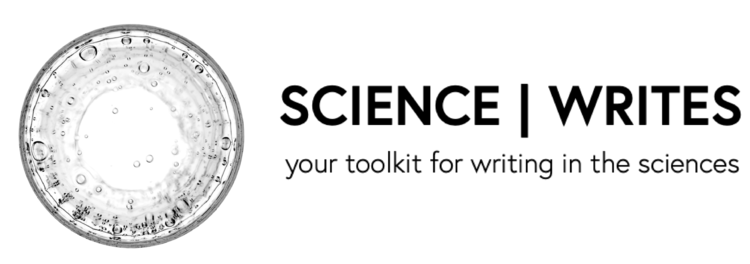NOTE:
You'll lose your reader and the value of your ideas if you overuse technical language and jargon, overuse passive voice, and/or use overly complex sentences.
AUDIENCE
Typically for a student paper, assume you are writing for an intelligent reader who is not an expert in the field; however, if the assignment prompt does not make this clear, ask your professor.
DON’T WRITE TO IMPRESS, WRITE TO COMMUNICATE.
One of the challenges of understanding scientific material is the high level of technicality. Therefore, even though writing for clarity is important in all fields, it’s often more difficult to achieve in the sciences, and science writers have to work on it in an intentional way. Your best strategy will be to envision an audience who might read your paper.
WRITE WITH AN AUDIENCE IN MIND.
Use clear prose.
Orient the reader to material that might be unfamiliar to them.
Define key terms.
Make connections between sentences, paragraphs, and sections.
Explain why your perspective or contribution matters.
Tell a story of how the pieces of the paper fit together (paragraphs, sections, existing scholarship, new findings or ideas).
WRITE SO THAT SOMEONE ELSE COULD LEARN FROM YOU.
The goal of writing is to show how your ideas fit within the existing scholarship and that you understand the scientific material. Therefore, you need to help your audience navigate the technicalities of your work so that they can appreciate how your ideas connect to work in the field.
Remember that the complexity of the natural world is hard enough to capture, so be precise in both the words and sentence structure you use to explain models and theories.
If you focus on clarity, you will end up impressing the audience with your ideas and insights.
STYLE
NOTE:
These are general guidelines on style; you should not apply these rigidly or without consideration for you goal. For example, when you are writing up your research findings, consistency and repetition are especially important when discussing methods and results. There is more room for variety and personal style in introductions and discussions and when analyzing sources, but still your emphasis should be on objectivity and precision.
When it comes to language in science writing, accuracy and clarity trump creativity and flair.
AS YOU WRITE:
Write simply and directly.
Focus on creating a logical, well-organized narrative.
Use language literally.
Avoid linguistic flourishes.
Avoid dramatic reveals.
SET ASIDE YOUR DOUBTS ABOUT WORD REPETITION.
Sometimes students worry that their writing will be “boring” if they keep using the same words repeatedly. However, repeating words does not make writing boring; weak ideas and disjointed lists of claims do.
Attempting to add variety to your writing by using synonyms might lead you to choose the “wrong” kinds of words to vary.
For example, a social scientist is perfectly happy repeatedly using the word “survey” to describe a series of questions asked of study participants. Even though the thesaurus lists “study,” “investigation,” “assessment,” and “questionnaire” among the many synonyms for the word “survey,” these words should not be used interchangeably. Why not? Because the reader is likely to think the writer is selecting a different word because they are referring to something different.
CONSIDER POINT OF VIEW.
Science journals encourage authors to use active voice; thus, the preference is to write “I predicted that …” rather than “It was predicted that …” or “We previously demonstrated that …” rather than “It was previously demonstrated that …”
You should not use the “editorial we” to refer to people in general; instead specify the meaning of “we” (e.g., Instead of writing “When we have a growth mindset …” you should write, “When college students have a growth mindset …”)
You should not use “we” to avoid using “I” when referring to yourself. It is OK to use “I.” You should use “we” in your papers only if you are referring to you and your collaborators. If you are the only author on the paper, use “I” instead of “we.”
